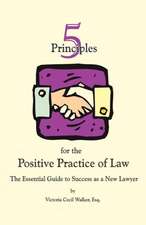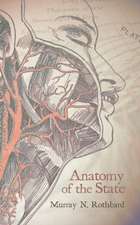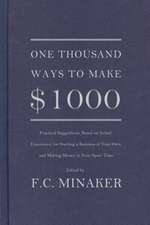The Law
Autor Frederic Bastiaten Limba Engleză Paperback
| Toate formatele și edițiile | Preț | Express |
|---|---|---|
| Paperback (21) | 32.94 lei 43-57 zile | |
| CREATESPACE – 30 sep 2010 | 40.66 lei 22-36 zile | |
| CREATESPACE – | 40.98 lei 22-36 zile | |
| – | 46.02 lei 22-36 zile | |
| Textbook Classics – 30 noi 2011 | 46.06 lei 22-36 zile | |
| CreateSpace Independent Publishing Platform – 31 mar 2010 | 46.64 lei 22-36 zile | |
| Fpp Classics – | 47.80 lei 22-36 zile | |
| CREATESPACE – 31 iul 2009 | 50.64 lei 22-36 zile | |
| CREATESPACE – | 57.39 lei 22-36 zile | |
| www.bnpublishing.com – 12 iun 2007 | 68.43 lei 22-36 zile | |
| 12th Media Services – 24 mai 2017 | 32.94 lei 43-57 zile | |
| Neeland Media – 7 mai 2017 | 44.36 lei 43-57 zile | |
| Lulu.Com – 8 apr 2017 | 44.53 lei 43-57 zile | |
| Aziloth Books – 10 aug 2011 | 46.07 lei 43-57 zile | |
| Lulu.Com – 23 aug 2020 | 48.23 lei 43-57 zile | |
| Creative Commons – 24 mai 2013 | 48.47 lei 43-57 zile | |
| CREATESPACE – 31 aug 2010 | 58.68 lei 43-57 zile | |
| Echo Library – 31 aug 2014 | 63.06 lei 38-44 zile | |
| Martino Fine Books – 7 iun 2011 | 73.55 lei 38-44 zile | |
| SANAGE PUBLISHING HOUSE LLP – 30 ian 2024 | 74.27 lei 43-57 zile | |
| Simon & Brown – 30 noi 2010 | 91.18 lei 38-44 zile | |
| Simon & Brown – 25 sep 2018 | 95.35 lei 38-44 zile | |
| Hardback (10) | 92.58 lei 43-57 zile | |
| www.bnpublishing.com – 12 iun 2007 | 108.00 lei 22-36 zile | |
| Lulu.Com – 22 aug 2020 | 145.48 lei 22-36 zile | +9.89 lei 5-11 zile |
| 12th Media Services – 3 feb 2017 | 92.58 lei 43-57 zile | |
| COSIMO CLASSICS – 31 aug 2010 | 98.49 lei 43-57 zile | |
| Creative Commons – 21 sep 2013 | 98.67 lei 43-57 zile | |
| Lulu.Com – 8 apr 2017 | 139.52 lei 43-57 zile | |
| Dead Authors Society – 7 iul 2016 | 145.36 lei 38-44 zile | |
| Simon & Brown – 25 sep 2018 | 147.83 lei 38-44 zile | |
| – | 149.06 lei 38-44 zile | |
| – | 149.06 lei 38-44 zile |
Preț: 47.80 lei
Nou
Puncte Express: 72
Preț estimativ în valută:
9.15€ • 9.58$ • 7.57£
9.15€ • 9.58$ • 7.57£
Carte disponibilă
Livrare economică 17-31 martie
Preluare comenzi: 021 569.72.76
Specificații
ISBN-13: 9781938357251
ISBN-10: 1938357256
Pagini: 58
Dimensiuni: 133 x 203 x 3 mm
Greutate: 0.07 kg
Editura: Fpp Classics
ISBN-10: 1938357256
Pagini: 58
Dimensiuni: 133 x 203 x 3 mm
Greutate: 0.07 kg
Editura: Fpp Classics





















